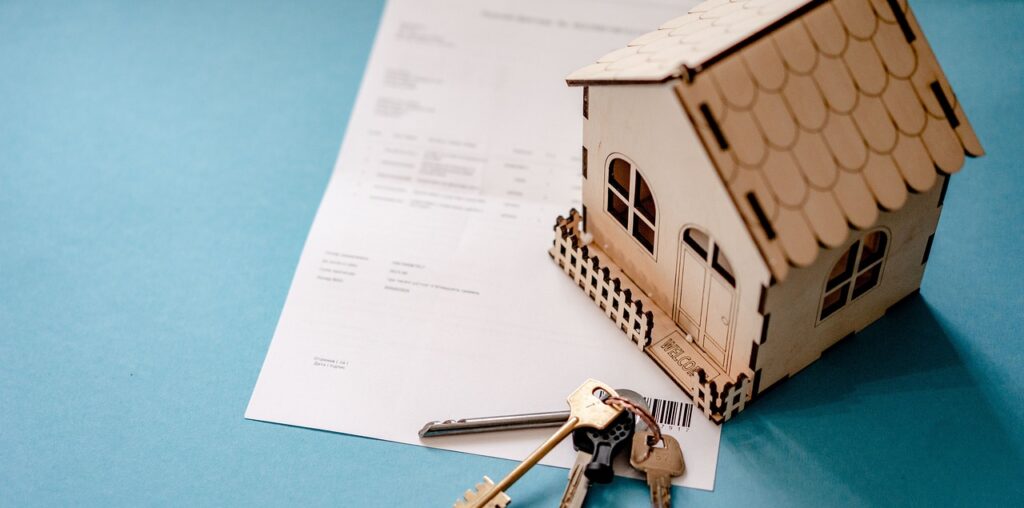What comes to mind when you think of refinancing your mortgage? Is it bad or good?
Mortgage refinancing involves applying for a new loan to help you repay your existing loan. For some, it might not be an ideal method of repaying mortgages because of past experiences and financial horror stories they’ve heard; it might sink deeper into debt. But for others, it’s a no-brainer.
So, how should one go about this?
An example of healthy financial habits is not letting your preconceived notions cloud your opinion of refinancing your mortgage or managing your money well. Weighing its pros and cons will allow you to judge whether it’s a good or bad thing.
The Pros of Refinancing Your Mortgage
Refinancing your mortgage can be a strategic path when your mortgage is weighing you down too much. It helps for several reasons:
Lower interest rates
Refinancing might help you find a loan with a lower interest rate. Suppose your original mortgage came with a 5.5% interest rate. Refinancing might help you discover a mortgage with a favorable 3.5% interest rate. It’s a slight difference but can translate into more considerable savings.
Monthly payment reduction
An immediate benefit of refinancing is a lower interest. You won’t have to shell out so much monthly, which eases your bank account and state of mind. It frees up space in your monthly budget, allowing you to be more flexible with your expenses.
Debt consolidation
Additionally, you might be able to use your home equity (the parts of your mortgage you’ve paid off) to refinance high-interest debts, like credit cards or other personal loans.
Bundling these debts into your mortgage allows you to take advantage of the lower mortgage interest rate. It means paying less for your greatest enemy in these circumstances: interest.
Improved loan terms
If the terms of your loans aren’t making you comfortable, refinancing might help you shake things up. Wouldn’t refinancing a 30-year mortgage to one that’s only 15 years potentially be easier for you to manage? The shorter timeline also means you’ll accrue less interest overall.
While your monthly payments will increase in this scenario, remember the bigger picture of your life: You’ll be rid of debt in half the time, allowing you to enjoy your finances earlier.
The Cons of Refinancing Your Mortgage
If it sounds too good to be true, it probably is. Refinancing your mortgage carries just as many drawbacks as it does benefits.
Closing costs
Application, appraisal, and title search fees are just the tip of the closing-costs iceberg. They can add up and counter some of the initial benefits of refinancing, like lower interest rates or more affordable monthly payments.
Extended loan terms
If you aren’t careful, you might lock yourself into a mortgage with an even longer duration than before. Although these often mean lower payments, you can’t expect to be mortgage-free anytime soon.
Potential impact on your credit score
Refinancing involves a credit check and opening a new loan account. These might temporarily impact your credit score, albeit slightly. But that doesn’t mean you should completely ignore it. If your credit score is already precariously low, you may want to consider alternatives.
Resetting the amortization schedule
Refinancing means starting a new mortgage, meaning there’s a fresh amortization schedule to adjust to. It might skew your early payments toward the interest rather than the principal balance. Moreover, refinancing can slow you down if you’ve already been paying your current mortgage for a while.
Factors to Consider Before Refinancing
Now that you understand what refinancing might bring you, you must consider certain factors affecting your final decision.
Your current financial circumstances
It’s always a good idea to grasp your financial situation before making significant changes. You may even realize that refinancing might be more challenging than initially thought. Factors to help you determine this include income stability, employment status, and total debt.
If you’ve recently changed jobs or have an unpredictable income, it might not yet be the best time to refinance your mortgage; it might just bring you more problems than solutions.
Your duration of stay in the refinanced property
If you plan to move out in a few years, it might not make sense to refinance your mortgage now. It would take too long to recoup your closing costs and fully realize the savings from a lower interest rate.
To illustrate, suppose, according to your estimates, it’ll take three years to recoup $4,000 in closing costs through reduced monthly payments. If you plan to sell your home within two years, you might not have enough time to enjoy the benefits of refinancing.
Your home equity
Lenders need to see a certain amount of equity before they approve your refinance application. Suppose your home’s value has decreased since you purchased it, or you’ve only made minimal payments on your mortgage. In that case, you might not have enough equity to qualify for favorable refinancing terms.
Your future goals and plans
How would refinancing fit into the bigger picture of your life? Are you planning to start a family soon? Return to school to get a new degree? These valid factors can influence how easy it is to squeeze a refinanced mortgage into your life.
Alternatives to Refinancing
If you’re hesitant about refinancing or you don’t think it’s for you, there are other options you can explore.
Home Equity Line of Credit (HELOC)
A Home Equity Line of Credit (HELOC) allows you to borrow against the equity you’ve built in your home. You can tap into this whenever you’re low on funds. The flexible borrowing and repayment terms make it an appealing option for many.
Let’s say you have $50,000 in equity in your home. With a HELOC, you can access this equity to fund home improvements, education expenses, or even unexpected medical bills. The advantage is that you only borrow what you need and pay interest on the amount you borrowed.
Paying additional principal
If you’re aiming to pay off your mortgage sooner and avoid incurring more interest, refinancing might not necessarily be the best option. Extra payments toward your principal balance would already suffice. While this might mean paying a little extra, it saves you the hassle of refinancing and dealing with another mortgage.
3 Factors to Consider the Right Time to Refinance Your Mortgage
You can’t just refinance your mortgage at any time. Plan it well with the following factors.
1. Interest rate differentials
The interest rate differential—the difference between your current mortgage and prevailing market rates—is crucial in determining the right time to refinance. If market rates have dropped considerably since you took out your original mortgage, it could be an opportune time to refinance and secure a lower rate.
2. Break-even point
The break-even point is where the savings you’ve accumulated from the lower mortgage payments match the closing costs you paid to refinance. If your plans to stay in your home extend beyond the break-even point, then refinancing makes financial sense.
For example, say your closing cost was $4,000. Refinancing reduces your monthly payment by $100. In this case, it would take 40 months, a little over three years, to recoup the closing costs. If you plan to stay in your home for at least four years, then it’s worth it for you to refinance.
3. Equity and loan-to-value ratios
Lenders would prefer working with borrowers with at least 20% home equity. You may qualify for better terms if you owe less than 80% of your home’s value.
For example, if your home is worth $250,000, a remaining mortgage balance of $180,000 means you have an LTV of 72%. This could make you eligible for favorable refinancing offers since your LTV tells lenders you aren’t a risky borrower.
Always Think Through Your Finances
Refinancing offers you a spectrum of possibilities. While there’s the allure of lower interest rates, reduced monthly payments, and improved loan terms, there are also factors to consider, including high closing costs, the risk of extending the loan altogether, and how it impacts your credit score.
There isn’t one correct answer because your situation is unique to everyone else’s. That means the best option depends on your current financial standing and plans in life. Don’t hesitate to ask for help if you feel confused or overwhelmed. A financial advisor guides you through the complexities of refinancing, ensuring you make the best decision.Don’t decide on refinancing your mortgages haphazardly. Take the time to think it through. Speak with your spouse or family about why the option crossed your mind. Your future deserves it.



